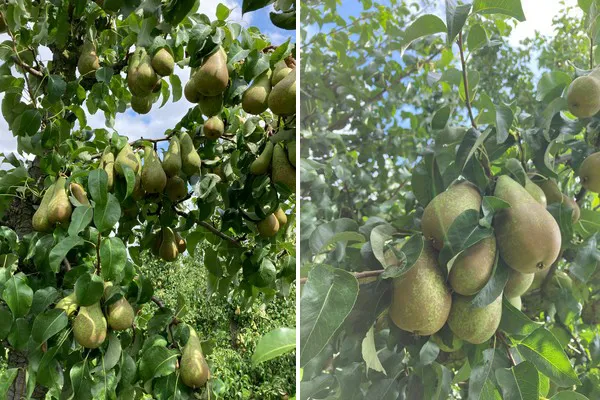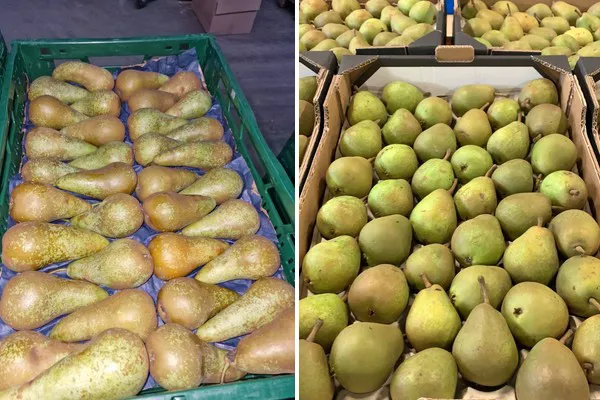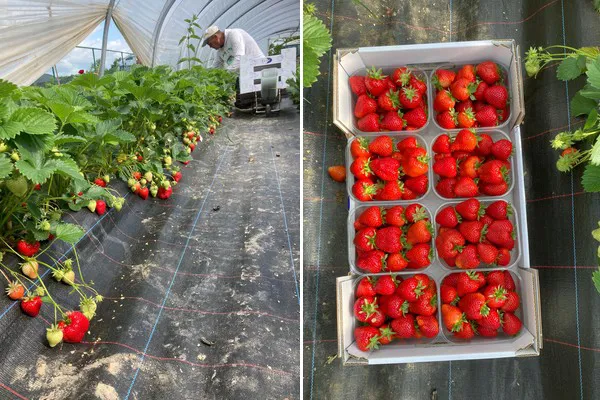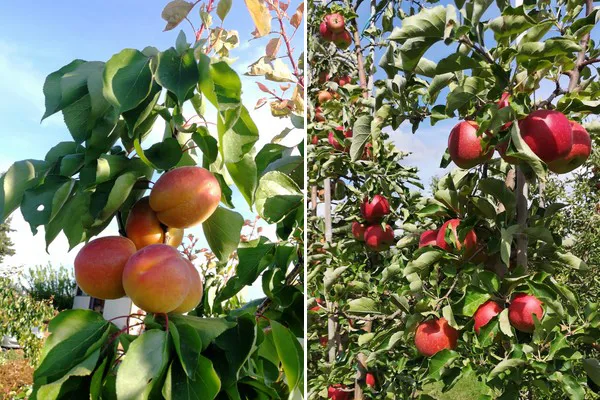This year, both organic and conventional pears are experiencing a high demand market. Generally, the supply is somewhat disappointing, and demand is skyrocketing. Gunther De Vadder of BelOrta explains, "I've got whiplash from shaking 'no' in Berlin. We're almost out of organic pears as well. We've got six tons sorted, but that'll be gone by tomorrow," he explains.

"It was necessary, though, because the quality wasn't up for long-term storage," Gunther continues. "The high percentage of dry matter and sugars led to faster ripening in storage, which means the quality can deteriorate quickly. We wanted to stretch it to week 10 for a few programs, but that's probably not going to happen. We'll have to switch to conversion pears. I've got another 400 tons of those, which will also be gone in four weeks."
"The demand is overwhelming, but it is what it is. In the Netherlands, I hear prices up to €2.60 ex-warehouse. That's actually crazy, but some are willing to pay it," says the trader. "The result is that this year, Argentina, Chile, and South Africa will come into the picture again. That wasn't the case last year, but this season they will benefit from the trend. The risk, however, is that you end up with the same scenario as two years ago. Back then, there was a similar situation, where various importers started importing organic pears from overseas like mad. European supermarkets, however, might decide to stop as soon as the Belgian or Dutch supply is ready. Then you run the risk that those importers will still have warehouses full of organic pears from Chile or Argentina in June or July, which again disrupts the market towards the new season."

European organic apple market is covered
Gunther notes that the organic pear sales tend to wind down from May. "With apples, it's a different story, as they continue to sell well into the summer. However, pears are not a staple product, leading to a halt in consumption from June. Then, many who have stocked up are left with a large inventory." Whether a larger supply of Belgian organic pears is a solution, Gunther dismisses for a practical reason. "It's just very difficult. Ultimately, you might want to work with your own organic pears until early May, but all our growers run mixed operations. This means that with conversion, they also have to switch their apples to organic. However, there are more than enough organic apples in Europe. The profit you then make with pears, you lose with apples."
Where there's been an extreme demand market for pears, the supply of organic apples is more than enough. "Some 90 percent of our apples stay in Belgium. France, for instance, is faced with an oversupply (30 to 40 percent too much for their own market), Germany and Austria have more than enough, and Italy also has plenty of goods, which they even export. The European apple market is completely covered, but for our own market, we're well-balanced this year, so we're hitting our prices just fine. Last year, there was a bit too much, and that quickly knocks off 30 euro cents per kilo. In the organic sector, the scales quickly tip the other way."

Start of Natyra sales
The trader also expects to sell out his inventory this year. "Last year, we actually had too much, but this year, the Jonagold mutants will be gone by the end of April, I expect. After that, we'll switch to Natyra, which we'll continue with until the end of May. Then, it'll be just right, and Italy will get its chance in Belgium with a better storage apple. You always have to ensure that the consumer gets the best possible apple, and in South Tyrol, long storage is simply better. We'll then switch to our first organic strawberries, and also cherries and plums, after which it'll be time for the summer apple. So the cycle goes," Gunther laughs.

However, it's certainly not that far along yet, for the sale of the Natyra apple has just started this week at BelOrta. A variety they see a lot of potential in for the organic market, which is why they've started earlier. "Normally, we would continue with other mutants until they were gone, after which we'd switch to Natyra. However, the volume has doubled and moreover, we see that it resonates well with consumers. Therefore, the acreage will only continue to grow in the coming years. That's also the goal."
"We want to gradually decrease the Jonagold and expand the Natyra. This is also a double-resistant variety, which means you won't run into problems with scab in a wet spring like this season, unlike with the Jonagold. Besides, Natyra fetches its premium price. It's easily 20 to 30 euro cents per kilo more, so we're looking forward to seeing how it goes in the coming weeks."
For more information:![]() Gunther De Vadder
Gunther De Vadder
BelOrta
Mechelsesteenweg 120
B-2860 Sint-Katelijne-Waver, Belgium
+32(0)155 655 291
[email protected]
www.belorta.be
